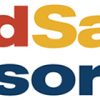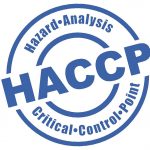Food manufacturers, what’s keeping you up at night? What’s the one issue that could damage your reputation so badly that you lose customers? The answer: A food safety crisis that at best, requires your products to be recalled and at worst, puts valued consumers at risk.
Similarly, if you’re a global supply chain manager, what’s your number one worry? The answer: Maintaining continuous compliance with industry standards, meeting increased regulation requirements, or maybe it’s a key supplier failing their BRC audit?
Whatever it is, we all know food manufacturers are under increased pressure, facing multiple internal and external challenges in an ever-changing complex environment. Challenges such as price volatility, stronger competition, increasing customer demands, complex supply chains and globalization are all taking their toll.
Furthermore, to add to this increasing pressure, organizations are still relying on paper-based systems and manual processes to help manage their risk, quality and compliance, and even their environmental health and safety (EHS)! This approach is inefficient, makes the audit and compliance process costly and difficult to scale, while compromising quality and complicating traceability. It’s time to take advantage of the digital age and relieve the pain and pressure of traditional risk and compliance management with a SaaS (software as a service) solution.
What is SaaS (Software as a Service)?
SaaS providers use the internet to deliver their bespoke software offering, usually in the form of a subscription-based service with a monthly or annual fee. The main benefit of SaaS is the cloud, being cloud-based software, upgrades and fixes are managed by the software provider, reducing or eliminating the need for an IT infrastructure—all your data is readily available in real time, on one centralized platform. SaaS is delivering more visibility and mobility without hassling organizations with the details and streamlining software integration across the globe.
SaaS solutions have become a game changer in modern risk management, and the following points illustrate why.
Speed of Deployment
Food and beverage manufacturers require a SaaS solution for multi-site global deployment with complete local management. A SaaS solution will graft onto your business processes immediately. No additional IT hardware should be needed, which means you don’t waste your time procuring and installing an IT infrastructure for multiple sites to benefit. It’s important to remember that the food and beverage industry is moving fast, so if your chosen SaaS solution requires months or years to implement, you’re talking to the wrong people. There is a common saying at my company: “We don’t count in months or years, we count in hours and minutes”.
Providers that offer traditional, on-premise solutions, require extensive configuration and bespoke coding to map to the client’s needs. Long rollout and deployment cycles are inherently expensive to maintain and have poor user experience. This is the reason most consumers revert to Excel/Word and Sharepoint, ultimately losing the ability to manage consistently at scale across their real estate. With an RPM (risk and performance management) SaaS solution you can expect a fast deployment with a comprehensive and configurable enterprise workflow from day one.
Staying Up to Date Is Automatic
Your chosen SaaS provider manage your entire solution from their side, which means upgrades, fixes and customization requests are immediate and automatic. Again, reducing or eliminating, the resource needs of an IT infrastructure. Organizations will have the advantage of immediately being able to utilize the latest features the SaaS solution has to offer. These upgrades will often be driven by feedback from users as organizational and industry requirements change. On-going system development will be crucial to staying in, and assuring, compliance and risk mitigation.
As a food manufacturer, it is important that your SaaS solution comes with a comprehensive document control library—a feature that will always be automatically updated by your SaaS provider. When you are conducting assessments in the field, many users require the ability to refer back to specific document types such as manuals, procedures, work instructions and the latest standards or regulations. These documents should be all managed by your SaaS provider, with teams consistently reviewing and updating important industry documentation on the platform for any user out in the field.
Ease of Use
Proofs of concept are crucial. Living in a world where we have an abundant amount of choice, organizations need to know their chosen SaaS solution has the ability to meet requirements and demands of both the organization and industry. This is made easy with SaaS, allowing organizations to test the software functionality in advance of purchase. Even for large food manufacturers, SaaS offerings can be used to test the software before it is purchased, and there should be no limit to the amount of trial users. The right risk and performance platform will also allow your team to upload specific templates, allowing new users to be familiar with assessments provided on the platform, easing your transition to a digital format.
Mobility and 360o Visibility
For further flexibility, popular SaaS providers will offer their solution in mobile format. Assessments conducted on the platform should be seamlessly synchronized between smartphone, tablet and desktop, allowing you to start an assessment on one platform and then pick it up on another. Users are no longer restricted to one location and can access their robust platform from any device, online or offline. We know that many companies are operating in
harsh environments, whether it’s the scorching temperatures of the Sahara desert or the blistering wind chills of northern Canada—your SaaS solution needs to come equipped with the right tools. By utilizing SaaS mobile offerings, organizations gain full visibility of their risk profile, making room for a culture of continuous compliance whether they’re in the field or back at the office.
Scalability at a Lower Cost
Implementing a SaaS solution means all your data is securely stored in the cloud. This provides scalability to match organizational growth strategies. Food manufacturers can add more users as their business grows without ever thinking about changing the hardware or requiring a full IT department for assistance. However, although SaaS offerings are provided at a lower cost than traditional solutions, each platform has its own rates, so shop around for a solution that will best suit your budget and requirements.
Bottom Line
Cloud-based software models have made risk, quality and compliance more affordable and flexible, considerably improving and streamlining business processes worldwide. Next time you are evaluating a SaaS solution for your food and beverage organizations, remember, the providers are staking their own survival on the software platform working. Whether it’s the protection, security, availability or performance of your data. Providers want to make their platforms a hassle-free and secure option for any food manufacturer looking to thrive in this demanding industry.
Relieve the pain and pressure of traditional risk and compliance management: Realize your investment from day one.








